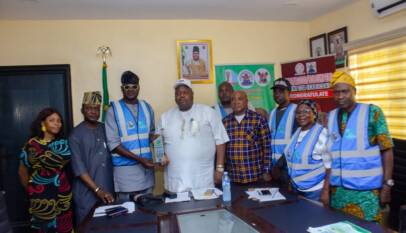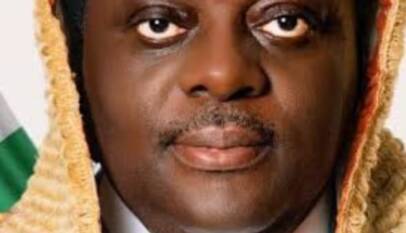Growing pains: Nigeria’s crisis of insecurity, economic uncertainty at 65 -FENRAD

Nkem Ukaegbu, Umuahia
As Nigeria celebrates its 65th Independence Anniversary, the Foundation for Environmental Rights, Advocacy & Development (FENRAD) joined fellow citizens in commemorating the journey so far.
While they saluted the resilience of the Nigerian people, the milestone demands not just celebration but critical introspection.
According to the Executive Director, FENRAD Nigeria, Comrade Nelson Nnanna Nwafor, they undertook an X-ray analysis of five key pillars shaping the nation’s reality today.
” Security, unemployment, inflation,economic uncertainty and government policy implementation. Nigeria remains entangled in layers of insecurity. From Boko Haram’s ongoing attacks in the North-East, to banditry in the North-West, IPOB-related violence in the South-East, and oil theft in the South-South, the country is on a dangerous trajectory.
“Recent killings of forest guards in Kwara and renewed insurgency in Borno State show that even previously “safe” areas are now under threat. The ripple effect is devastating—farming communities displaced, food production stifled, and lives lost with impunity,” he explained.
FENRAD called for immediate security sector reform: community policing, intelligence modernization, improved coordination between security agencies, and accountability for human rights violations.
While official data reports a 4.3% unemployment rate (Q2 2024), the reality is that millions—especially young Nigerians—are trapped in underemployment, gig work, and survivalist hustles.
Over 14% of young Nigerians are Not in Education, Employment, or Training (NEET). With limited formal job creation, the economy is failing its youth.
FENRAD urged urgent action: expand public works programs, revamp vocational training, unlock MSME funding, and revive agro-industrial zones to absorb young labour.
“The cost of living is unbearable. Inflation is officially at 23.7% (April 2025), but the price of food, transport, rent, and energy has gone beyond what ordinary citizens can afford. The removal of the fuel subsidy, while fiscally necessary, was implemented without sufficient cushioning for the poor.
“Food inflation is driven not only by macroeconomic policies but also by insecurity, logistics breakdowns, and power supply failures,” he further explained.
FENRAD recommended targeted food security measures, rural infrastructure upgrades, and improved supply chain interventions to reduce input and transport costs.
Although GDP is projected to grow at 3.6% in 2025, growth has not translated into better living conditions. Investors are wary due to policy inconsistency and insecurity, while businesses face high borrowing costs, forex scarcity, and unreliable infrastructure.
Reforms such as exchange rate unification and fuel subsidy removal are important but were poorly timed and communicated, worsening hardship.
FENRAD further called for clarity in policy direction, stronger safety nets for vulnerable groups, and inclusive growth models that prioritize citizens, not just macro indicators.
The implementation of economic policies under the current administration lacks adequate planning, consultation, and transparency.
Social protection programs are underfunded, inconsistently delivered, and prone to politicization.
FENRAD demanded improved governance: budget transparency, independent monitoring of social programs, and community involvement in development decisions.
“Nigeria at 65 must choose: continue down the road of inequality and insecurity, or rise to build a nation of justice, jobs, and stability”, he stressed.
FENRAD believed that economic transformation must be anchored on human rights and inclusive governance, national security built on justice, not just firepower, job creation driven by real sector growth and transparency in policy design and execution.
“Reforms without empathy will only deepen hardship. At 65, Nigeria must lead with justice, transparency, and people-first policies,” he stated.
Egbe -Idimu Chairman rallies support for President Tinubu’s economic reforms, to commission additional free buses
Stanley Ihedigbo Executive Chairman of Egbe Idimu Local Council Development Area (LCDA), H…





